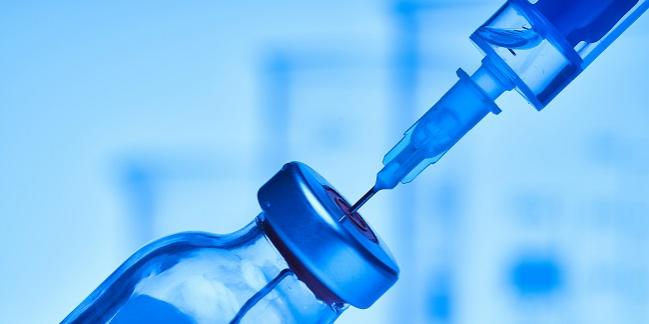Remdesivir Study for COVID-19 Yields Positive Top-line Results
The IV drug has a “clear-cut, significant, positive effect on diminishing the time to recovery,” says Anthony Fauci.

A couple of new clinical trials testing the antiviral agent remdesivir for the treatment of patients with COVID-19 have yielded mixed results, although the largest of the randomized trials has met its primary endpoint and is being hailed as positive news by none other than National Institute of Allergy and Infectious Diseases (NIAID) Director Anthony Fauci, MD.
Preliminary results released today from the Adaptive COVID-19 Treatment Trial (ACTT), which is sponsored by the NIAID, showed that patients who received remdesivir had a 31% faster time to recovery than those who received placebo (P < 0.001). The median time to recovery was 11 days in the remdesivir-treated patients compared with 15 days in the placebo arm.
There also appeared to be a trend toward a lower risk of death with remdesivir. In total, 8% of patients in the remdesivir arm died compared with 11.6% in the placebo group (P = 0.059).
ACTT included 1,063 patients from 68 sites, including 47 in the United States plus 21 in Europe and Asia. In a news briefing from the White House, Fauci called ACTT the “first truly high-powered, placebo-controlled trial” and said investigators had been informed early this week by the data and safety monitoring board “that remdesivir has a clear-cut, significant, positive effect in diminishing the time to recovery.”
Importantly, the study shows “that a drug can block this virus,” said Fauci. Based on these new data, remdesivir should become the new standard of care for patients with COVID-19, he added.
In contrast with the ACCT study, a randomized controlled trial in Chinese patients with severe COVID-19 has found that remdesivir failed to improve the time to clinical improvement, reduce mortality, or reduce the time to clearance of the virus in patients with severe COVID-19. The study, published today in the Lancet, was significantly underpowered, however. Due to a decline in China’s cases, investigators halted the trial after just 237 of the planned 453 patients were enrolled.
In an editorial, John David Norrie, MSc (University of Edinburgh, Scotland), writes that the Chinese study’s findings are simply inconclusive, as opposed to negative, because it included an inadequate number of patients.
Gilead, the manufacturer of remdesivir, a nucleoside analogue prodrug originally developed to treat the Ebola virus, also announced top-line results from their open-label SIMPLE trial. In that study, there was no significant difference in the improvement in clinical status among patients treated with 5- versus 10-day treatment regimens of remdesivir.

Michael O’Riordan is the Managing Editor for TCTMD. He completed his undergraduate degrees at Queen’s University in Kingston, ON, and…
Read Full BioSources
Wang Y, Zhang D, Du R, et al. Remdesivir in adults with severe COVID-19: a randomized, double-blind, placebo-controlled, multicenter trial. Lancet. 2020;Epub ahead of print.
Norrie JD. Remdesivir for COVID-19: challenges of underpowered studies. Lancet. 2020;Epub ahead of print.


Comments